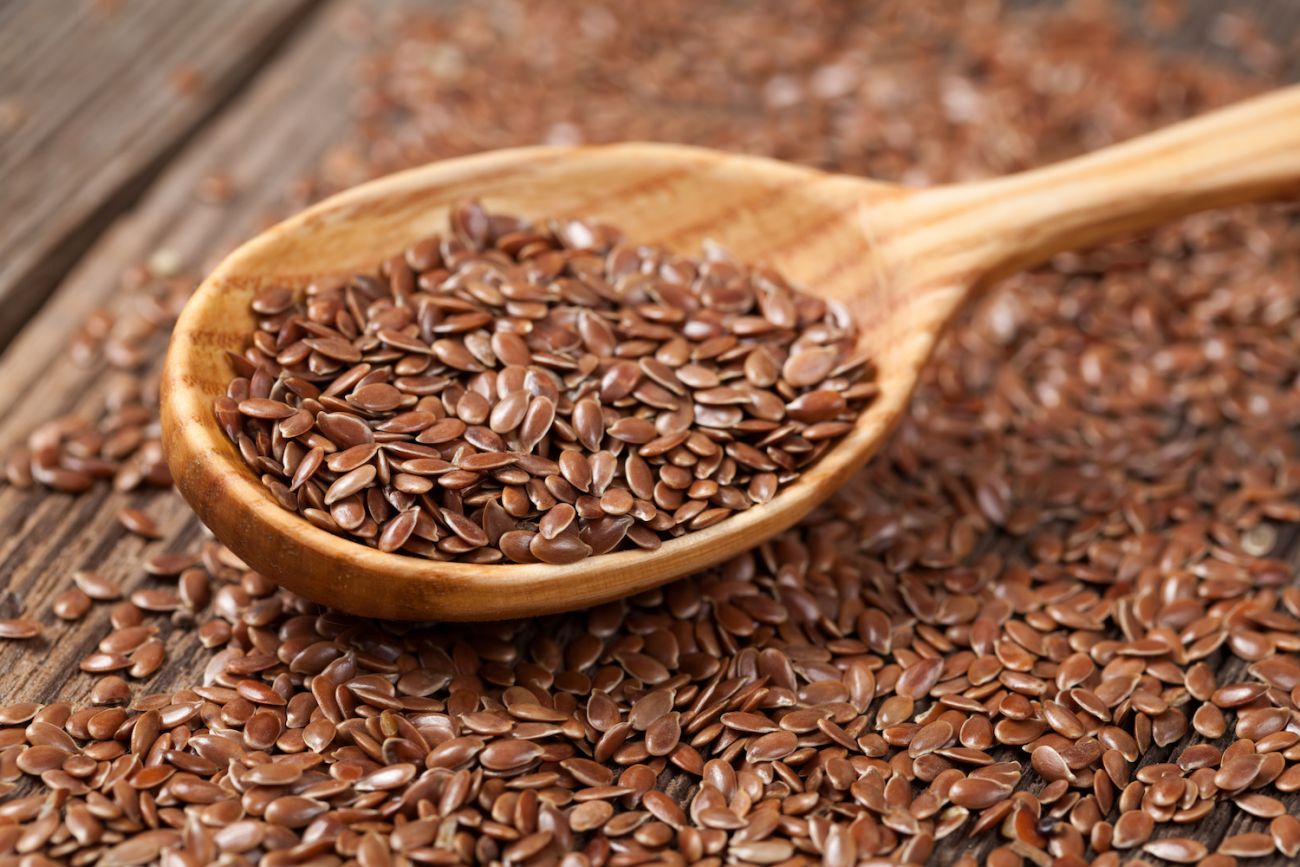Roswell Park study found variations in how women of different backgrounds metabolize flaxseed
- Lignans are compounds prevalent in whole grains, vegetables, fruits and seeds
- Roswell Park team investigated patterns of lignan excretion in 252 women
- Genetic variation may affect metabolism of dietary exposures, findings suggest
BUFFALO, N.Y. — While research suggests that increasing dietary intake of lignans — nutrients found in whole grains, vegetables, fruits and seeds — may reduce risk of breast cancer, the findings from studies testing this hypothesis have been inconsistent. A new study from Roswell Park Comprehensive Cancer Center, published in Cancer Epidemiology, Biomarkers & Prevention, a journal of the American Association of Cancer Research (AACR), examines how women of different backgrounds metabolize lignans. What these scientists learned may help explain why associations between diet and breast cancer risk have been difficult to demonstrate consistently.
Lignans are phytoestrogens that are structurally similar to naturally occurring steroid hormones. A team of Roswell Park researchers led by Susan McCann, PhD, RD, Professor of Oncology in the Department of Cancer Prevention and Control, conducted a dietary intervention study in 137 healthy, postmenopausal Caucasian women and 115 healthy, postmenopausal African-American women in Western New York. Participants were randomly assigned to either maintain their usual diet or to consume 10 grams per day of ground flaxseed, the richest known source of lignans, for 6 weeks. Then, after a 2-month period with no dietary interventions, all participants crossed over to the other diet for an additional 6 weeks.
The research team, which also included first author Huiru Chang, MS, MA, analyzed the urine of participants before and after the flaxseed intervention, and compared the excretion of the phytoestrogen enterolactone (ENL), which has been associated with lower risk of breast cancer, by genotyping 29 genes related to steroid hormone metabolism.
The team identified several individual single-nucleotide polymorphisms, or SNPs — the most common type of genetic variation — associated with lignan excretion, particularly among African-American women. They also observed lower excretion of enterolactone at all time points for African-American women compared to women of European extraction, suggesting that genetic variation may, in part, be involved in the racial differences in ENL excretion.
Based on these results, the team concluded that future dietary interventions to reduce breast cancer may benefit from incorporating information on genetic variation in metabolism. Most previous genetic studies, they note, have been conducted almost exclusively in populations of European ancestry.
“The fact that we observed lower excretion of enterolactone in women of African ancestry suggests that more enterolactone is remaining in circulation in these women, which may help us to account for some of the differences in disease occurrence observed between African-American and Caucasian women,” notes Dr. McCann, senior author on the new publication. “Our study adds to the evidence that individual differences in metabolism of diet-related exposures may be important considerations in the development of dietary interventions to reduce disease risk.”
The study, “Genetic Variation in Steroid and Xenobiotic Metabolizing Pathways and Enterolactone Excretion Before and After Flaxseed Intervention in African American and European American Women,” is available at cebp.aacrjournals.org. This research was supported by two grants from the National Cancer Institute, or NCI: project no. U01CA161809 and project no. P30CA016056, Roswell Park’s Cancer Center Support grant from the NCI.
###
Roswell Park Comprehensive Cancer Center is a community united by the drive to eliminate cancer’s grip on humanity by unlocking its secrets through personalized approaches and unleashing the healing power of hope. Founded by Dr. Roswell Park in 1898, it is the only National Cancer Institute-designated comprehensive cancer center in Upstate New York. Learn more at www.roswellpark.org, or contact us at 1-800-ROSWELL (1-800-767-9355) or ASKRoswell@RoswellPark.org
Annie Deck-Miller, Senior Media Relations Manager
716-845-8593; annie.deck-miller@roswellpark.org
